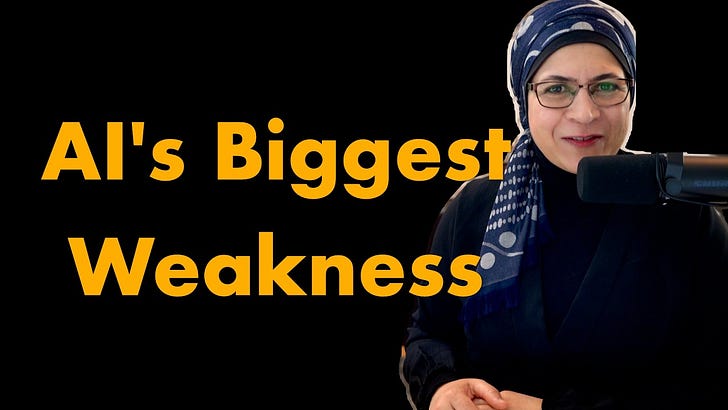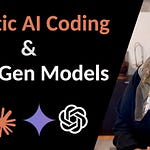“Do you have a license to work in Germany?”
The voice on the other end of the screen was calm and utterly oblivious to the bombshell it was about to drop. I straightened my posture, my fingers tapping lightly on the edge of my desk. I had all the paperwork sorted—everything was in order.
“Yeah, I’m a German citizen, actually,” I replied, my voice steady.
There was a pause.
Then, the interviewer’s voice came back, tinged with confusion. “Oh. The AI didn’t tell me that.”
I blinked at the screen. “I mentioned it in my CV,” I said quickly. “I have dual nationality—German and Tunisian.”
Then, the words that made my stomach drop: “The AI only told me that you’re Tunisian.”
Wait, what?
My mind raced. Only Tunisian? But my CV was crystal clear. I’d listed both nationalities, right there in black and white. How could the AI miss something so… obvious?
As I sat there, trying to process what had just happened, one question burned in my mind: Why? Why did the AI decide to highlight one part of my identity and ignore the other? What kind of logic—or lack thereof—was at play here?
This wasn’t just a glitch. It was a glimpse into AI systems, the invisible hands that shape how we’re seen, judged, and even hired.
Let's talk about the hidden machinery that drives these systems, and why fairness, accuracy, and security aren't just buzzwords. They’re the foundation of trust in a technology that’s increasingly shaping our future.
What’s Behind the Curtain of AI Decision-Making?
AI systems are like really smart assistants, but they don’t “think” like humans. They process information based on patterns, probabilities, and data rules. In my case, the AI likely focused on the Tunisian nationality because of biases in how it was trained or designed.
If an AI sees “Tunisian” as a unique keyword but treats “German” as less important — maybe because German citizenship is assumed or overrepresented in its training data — it makes an incomplete judgment.
Fairness: Why the Details Matter?
This brings us to fairness. If AI systems are going to make decisions about jobs, loans, or even medical diagnoses, they can’t afford to overlook details.
There might have been cases where AI systems in hiring favored male candidates for technical roles simply because the data they were trained on reflected historical hiring biases.
Imagine the impact on someone’s career — or life — if the system highlights the wrong piece of information or ignores something critical.
Accuracy: Beyond the Numbers
Accuracy in AI isn’t just about getting an answer — it’s about getting the right answer.
In my interview, the system wasn’t technically “wrong” — I am Tunisian. But excluding my German citizenship created a false narrative.
Here’s another example: Facial recognition systems often misidentify people with darker skin tones. Studies have shown that accuracy can drop significantly for these groups, leading to real-world consequences, like false arrests or denial of services.
Security: Keeping It Safe and Sound
Now let’s talk about security. If an AI system makes decisions based on sensitive personal data, how is that data protected?
Breaches can expose private information, and manipulations can create catastrophic outcomes. Think of election interference or deepfakes spreading misinformation. Without robust security, AI isn’t just unreliable — it’s a risk.
What Can You Do About It?
How do you make AI better?
It starts with transparency. Companies need to explain how their systems work. Engineers and developers should train AI on diverse, balanced datasets. Audits should ensure the AI isn’t accidentally promoting bias or inaccuracies.
But here’s the thing — you don’t have to be an AI engineer to care about this. Whether you’re a recruiter, a policymaker, or just someone using AI tools daily, ask questions. Push for better systems.
Final Thought
AI is incredible, but it’s only as good as the people building it. So let’s hold these systems — and ourselves — accountable.
If a job interview AI can mess up my dual nationality, imagine what it could miss in more critical situations.
Now, over to you: Have you ever had a strange experience with AI? Drop it in the comments. I’m all ears!
Further Reading and Viewing
🎁 Special Gift for You
I’ve got a couple of great offers to help you go even deeper. Discount & free access to my video courses - available for a limited time, so don’t wait too long!
FREE coupon DA011D18EDB2438FC6DA
🐳 Getting Started with Docker & Kubernetes + Hands-On
FREE coupon B880473C053745E23792💯 Modern Software Engineering: Architecture, Cloud & Security
Discount coupon C0E23026977EB2121737⚡ Master Web Performance: From Novice to Expert
Discount coupon 05FAB943B30B2B3FC710
Until next time—stay curious and keep learning!
Best,
Rakia
Want more?
💡 🧠 I share content about engineering, technology, and leadership for a community of smart, curious people. For more insights and tech updates, join my newsletter and subscribe to my YouTube channel.










